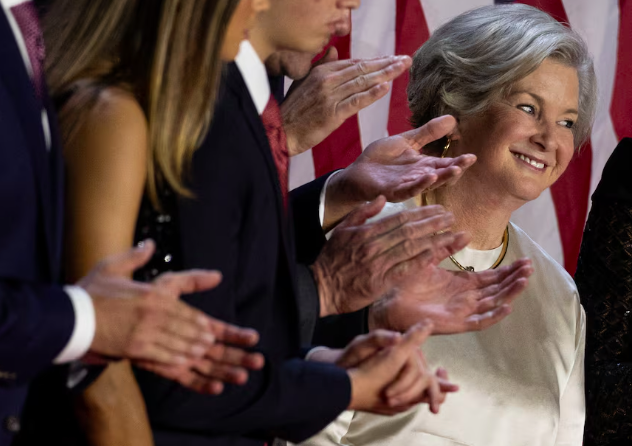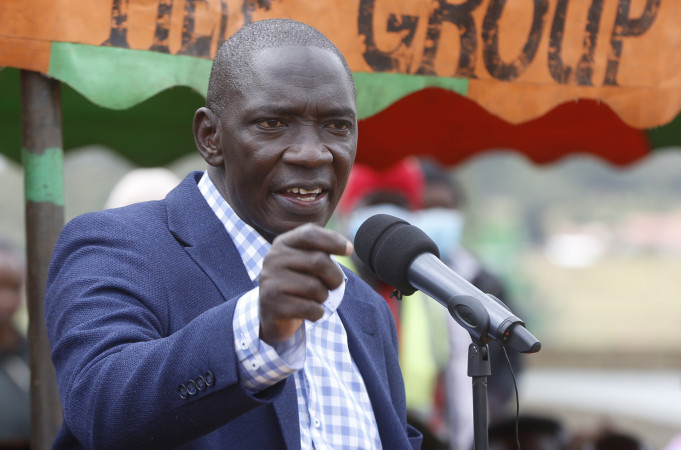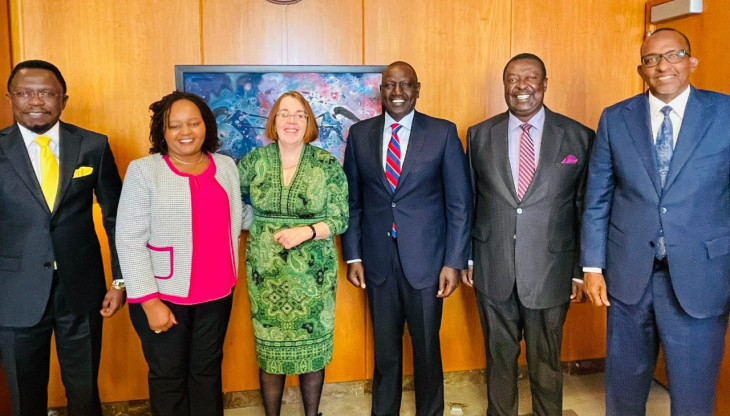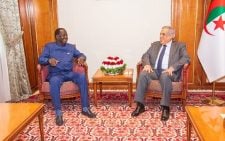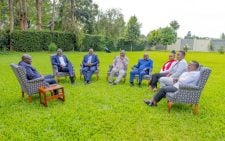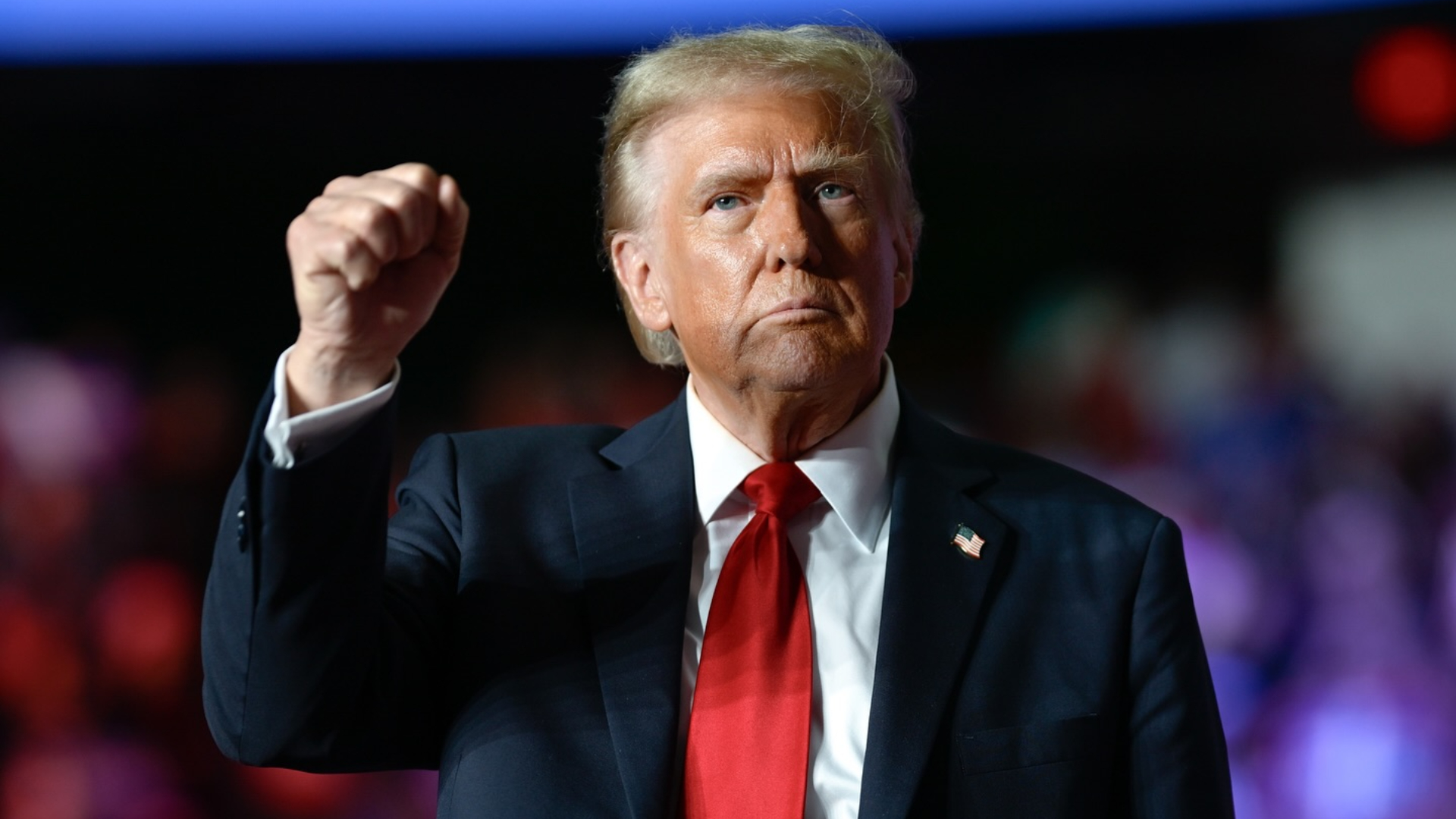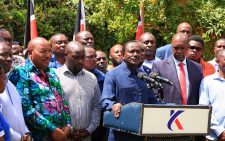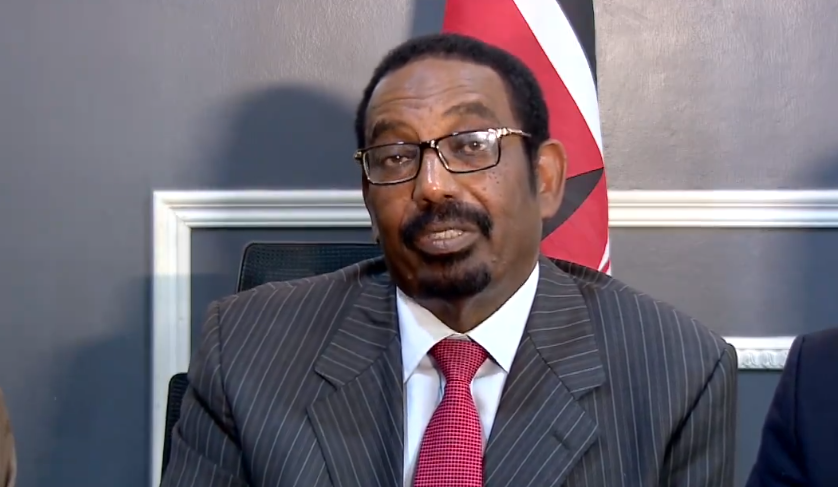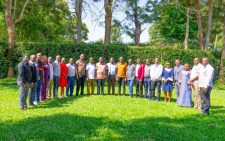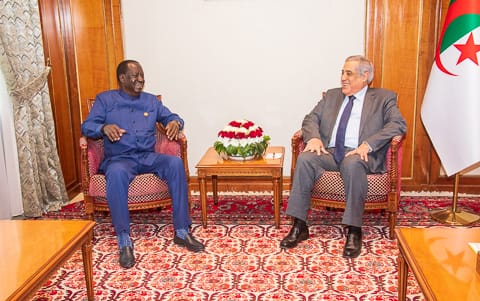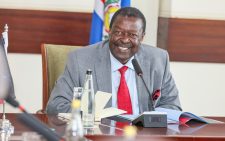‘A Promised Land’: Self doubt, intrigues and battles in Obama’s journey to White House
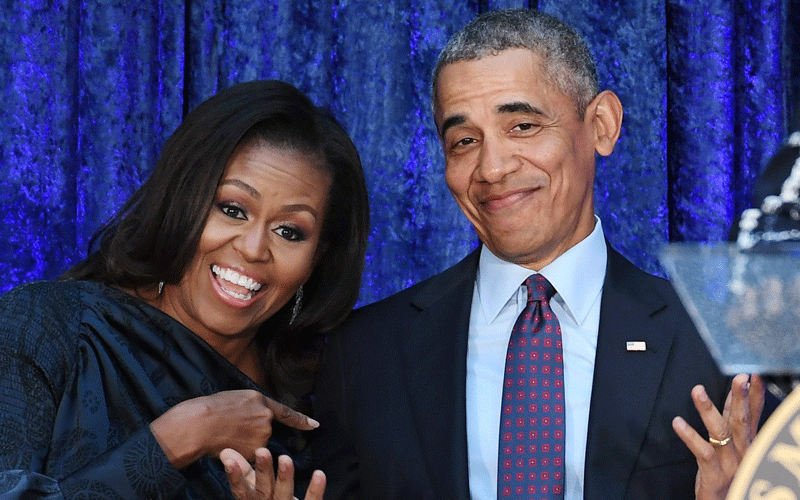
In truth, the first shot in Barack Obama’s battle for the US presidency was fired during the 2004 Democratic Party convention held in Boston, Massachusetts.
At the time, the youthful Obama was gunning for the Illinois Senate seat, a battle that, as he recounts in his latest memoir, A Promised Land, was in itself full of political intrigue, backstabbing and private battles fought in the full glare of the media.
One of the casualties of this media battles was his main challenger, who was dragged into a scandalous divorce case, leaving a clear path for an Obama victory.
It is worth mentioning that at the time Obama was seeking the seat, there was not a single African-American Senator, the last one having been elected in 1993.
In the heat of the campaigns, Obama was asked to speak at the Democratic Party convention, which was meant to endorse John Kerry as the party’s presidential candidate.
This was the speech that launched him to both national and international limelight.
“There comes a point in the speech where I find my cadence,” writes Obama, who was the keynote speaker at the convention.
“The crowd quiets rather than roars. It’s the kind of moment I’d come to recognise in subsequent years, on certain magic nights.
You’ve tapped into some collective spirit, a thing we all know and wish for – a sense of connection.”
Obama’s presidential journey was critical in 2004 for two reasons: First, due to a series of logistical mishaps and miscalculations, he had been unable to enter the main hall where the action was happening during the 2000 convention.
He ended up watching the proceedings from the periphery, on screens mounted outside the venue.
As fate would have it, during the 2008 convention held in Denver, Colorado, he would, once again, be the star attraction, this time, when he was endorsed by the party to become its first non-white presidential candidate after defeating Hillary Clinton to clinch the ticket.
Clinton has dedicated acres of space in her book, Hard Choices, to describe the drawn-out campaign.
Whereas Obama revisits the race for the party ticket, he does not go to great lengths to talk about it.
However, he has this to say about his 2004 speech.
“Rarely does a week go by when I don’t run into somebody – a friend, a supporter, an acquaintance, or a total stranger – who insists that from the first time they met me or heard me speak on TV, they knew I’d be president”.
To become president, however, he had to contend with the ambitions of other democratic party candidates, such as Hillary and Joe Biden, among others, all of who had started laying the groundwork for their campaigns long before Obama even decided to throw his hat into the ring as well.
“Unlike me,” he writes, “most could point to a record of meaningful legislative accomplishments.
And I liked them. They had treated me well and were more capable of running an effective campaign and, beyond that, an effective White House.”
The one person who convinced him to ignore his political inexperience and run was Harry Reid, a high-ranking senator in the party.
“Ten more years in the Senate won’t make you a better president,” Reid told Obama, before outlining why he thought Obama should vie for the highest political seat in America.
Other political bigwigs shared Reid’s view, but not so his wife, Michelle, who was miffed at the whole idea.
He recounts that when he asked that they think about the possibility of vying as a couple, she was incredulous.
“Did you say we?” she said to him. “You mean you, Barack. Not we.” And she asked him to perish the thought.
“I reached for her hand,” he writes. “I didn’t say I am running, honey. I just said we can’t dismiss the possibility.”
In the end, what started as a possibility, eventually morphed into an argument between the son of a Kenyan man and his American wife, but ended up becoming a reality when, in February 2007, Obama eventually announced that he would be running for the White House.
Uncommon hyperbole
With an uncommon hyperbole, he writes: “Over the course of two years we would catch lightning in a bottle and tap into something essential and true about America.”
His grueling White House journey had started in earnest and he embarked on the odious task of putting together a team that would help turn that dream into a reality.
Obama says that after he won the first primary in Iowa, Biden stepped down from the race.
Other candidates would later follow suit but Hillary fought out to the very last moment, holding on to every pathway to victory no matter how tenuous it looked.
By the time she eventually conceded, the Republican Party had long settled on Senator John McCain as its man.
McCain would go on to pick a woman, Sarah Palin, as his running mate, taking a great deal of wind from Obama’s sail.
It was Palin, ironically, who became the centrepiece of the Tea Party and the Birther movement that would, eight years later, pave the way for Donald Trump to succeed Obama despite losing the popular vote to Hillary.
As the 2008 campaigns gathered steam, Obama and his team had to contend with one big question on which his political fortunes would hinge.
“Indeed,” he says “we suspected that the central question was likely to be whether a majority of voters could get comfortable with the idea of a young, inexperienced African American senator – one who hadn’t previously served in the military or even in an executive office – filling the role of commander-in-chief.”
To help answer that question, Obama made a trip to the Middle East, starting with Afghanistan, where he met top American military commanders who were carrying out a campaign against terrorism there.
He later travelled to Israel and Palestine, where he met the leaders of the respective countries, before making forays into Europe, meeting key movers and shakers such as Angela Merkel of Germany. In all these forays, he had one question on his mind arising from his mixed bag of successes.
“Was I prepared to be a world leader?” he asks. “Did I have the diplomatic skills, the knowledge and stamina, the authority to command?”
What emerged after the trip, however, was the perception, among American journalists, that he looked presidential. As far as the media was concerned, he could play the part.
“But for me,” he recounts, “the trip went beyond optics. Even more than back home, I felt the immensity of the challenges that awaited me if I won, the grace I’d need to do the job.”
Obama went on to defeat McCain, making history as the first man of mixed racial heritage to hold the position of Commander-in-Chief of the US armed forces, the man whose fingers would press the nuclear codes if called upon to do so.
He recounts that in the transition period after he won the election and was waiting to be sworn in, his predecessor, George W Bush, invited him to the White House to set the stage for a smooth handing over of power.
During that meeting, President Bush warned him that one of the biggest headaches that he would face would come from people inside Obama’s own party.
“Tell you what, though,” Bush told him. “It’s a heck of a ride you’re about to take. Nothing like it. You just have to remind yourself to appreciate it every day.”
Obama would go on to occupy the White House for eight years, with the latest memoir capturing the highlights of the first four.
Yesterday, in a video to promote the newly-released book, Obama said that through the book, he hoped to give “an honest reckoning of his time as president, the events and people that shaped those eight years and give people some insights into the decision-making process that we went through.”
Most of all, however, he is also seeking to inspire young people and give “some sense of how I as a young man was able to translate a whole bunch of issues that I had into working on things that were larger than myself.”
— The writer is a partner and Head of Content at House of Romford. [email protected]
